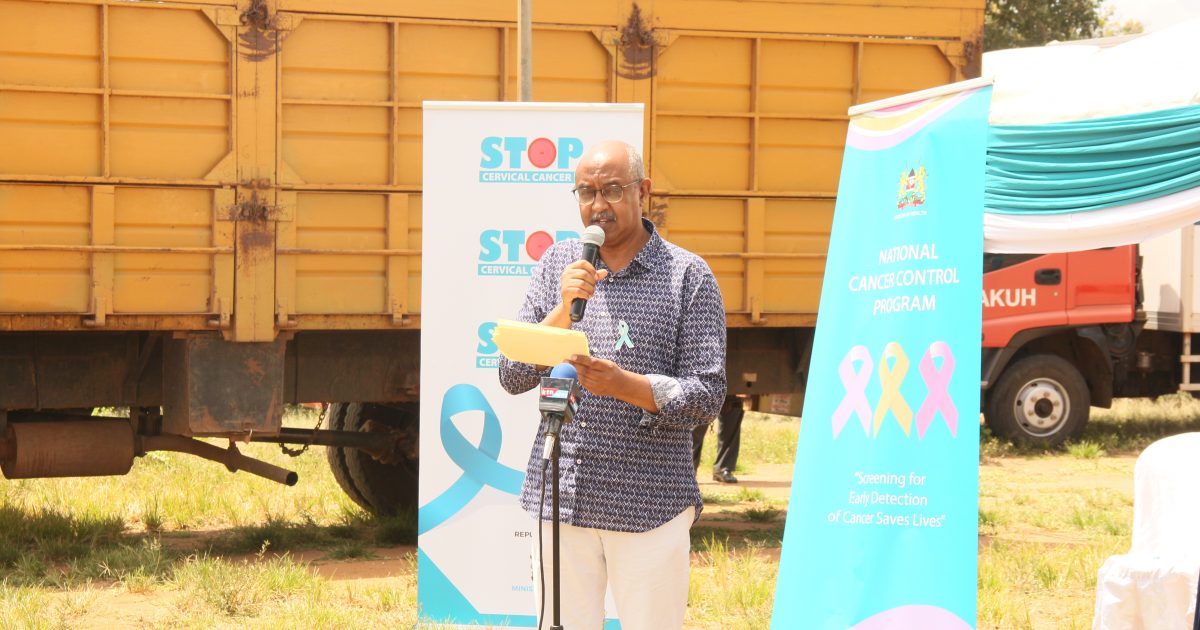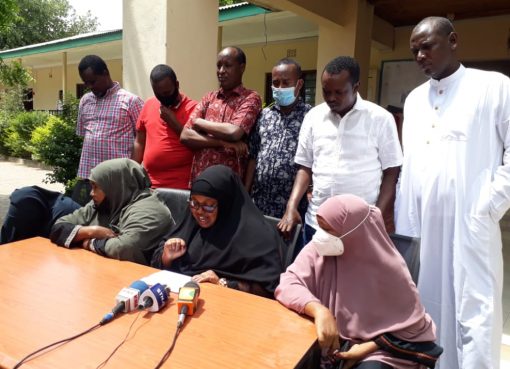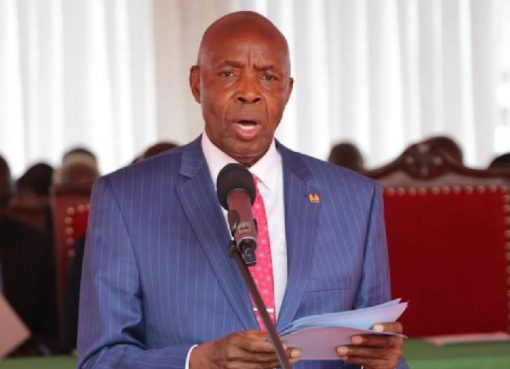

Only 16.4 percent of women within the reproductive age in the country turn up for cervical cancer screening, the Health Chief Administrative Secretary (CAS), Dr. Rashid Aman has said.
Dr. Aman noted the numbers were disturbingly low and attributed the poor turnout to lack of awareness.
Speaking at Kathonzweni during the launch of the National Cervical Cancer Awareness Week on Tuesday, the CAS said there was the need to mobilize women to go for early screening and urged chiefs and their assistants to help create awareness and save lives.
“Cervical cancer is one of the leading causes of death and has impoverished many Kenyans who seek medical treatment abroad. Kenyans need to be told to take charge of their health,” he said.
And in efforts to fight the cancer, Kenya was among the leading countries in Africa to initiate the Human Papilloma Virus (HPV) vaccine for girls below the age of ten, added Dr. Aman.
“In Makueni 30 percent of the girls have been vaccinated and we hope by March the county will have achieved 100 percent,” said the CAS.
He disclosed that the government has set up ten cancer treatment centres in the country to enhance the fight against cancer.
Dr. Aman said the centres had been equipped with all the required equipment and drugs for cancer treatment.
“These centres will provide services for cancer screening and treatment and plans are under way to create more chemotherapy and radiotherapy centres to improve access to cancer treatment,” added the CAS.
He urged women to go for screening to avert cervical cancer and disclosed that the Ministry of Health was targeting to screen 5,000 women across the country during the awareness week.
“No woman or girl should be left behind, screening is available in all public health facilities, Faith Based medical centres and selected private health facilities,” said Dr. Aman.
Speaking at the same event, the Chief Executive Officer (CEO) National Cancer Institute of Kenya, Dr. Alfred Karagu appealed to Kenyans to go for regular screening to avert cervical cancer.
Dr. Karagu said cervical cancer was one of the treatable cancers if detected early. “Early detection can save lives,” said the CEO.
The Makueni Heath Executive, Dr. Andrew Mulwa decried the rise of non-communicable diseases in the country including cancer, diabetes and blood pressure.
Mulwa said close to 29,000 Kenyans dies each year due to cancer and underscored the need for both levels of government to prioritise cancer.
“Cancer has become very prevalent and emphasis should be put on screening,” said the health executive.
He said the Universal Health Care (UHC) programme that the government plans to roll out should, include screening for cancers and other non-communicable diseases as a package to save lives.
“UHC is one of the big four agenda and should include cancer screening as a package,” said Mulwa.
Also in attendance was the Makueni Deputy Governor, Adelina Mwau, the County Commissioner, Maalim Mohammed and the Makueni MP, Daniel Maanzo
By Roselyne Kavoo





